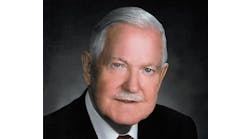The OPC Foundation launched an initiative Apr. 22 to boost interoperability across IT and cloud platforms using its OPC UA communication strategy, and targeting applications such as data analytics using AI, industrial data spaces, digital product passports, and industrial metaverse application, as well as digital twins. The initiative aims to create a cloud-reference architecture to provide best practices and optimized profiles of OPC UA standards for broader data sharing, which is in line with global regulations, such as the EU's Data Act or its Cyber Resilience Act (CRA). In addition, the initiative will cover using OPC UA companion specs and other OPC UA information models in cloud-computing services.
To ensure equal access to digitalized information, OPC Foundation reports that legislators are requiring vendors to share data among broader ecosystems. In addition, use cases for traceability, such as the Digital Product Passport (DPP) and the Battery Passport (DBP), will increase the need for interoperable data models. Also, governmental security requirements, such as the Cyber Resilience Act, are creating more requirements for data communication standards. The foundation adds its IEC-standard OPC UA can mee these demands.
“OPC UA is the industrial interoperability standard in on-premises, OT environments, field-level communications and industrial-edge applications” says Stefan Hoppe, president of the OPC Foundation, “It’s not surprising that OPC UA users want to leverage their investment in OPC UA Information Models and communication patterns, and use it in IT and cloud applications by enhancing secure, interoperable cloud architectures for advanced data analysis, digital twins and artificial intelligence (AI).”
OPC Foundation adds its IT/cloud initiative is supported by cloud-industry leaders, including Alibaba-Cloud, AWS, Huawei, Microsoft, SAP and major manufacturers. Their collaborative effort is expected to harmonize existing working groups, and initiate new ones for cloud-centric applications, aiming to utilize and extend OPC UA and foster interoperability between cloud solutions. This strategic initiative is also expected to reduce costs and improve the usability of OPC UA Information Models for cloud-based applications.
OPC UA for AI
In other Apr. 22 news, the OPC Foundation announced it’s formed a working group to use AI to streamline production from data analysis to code generation, and redefine user interfaces in manufacturing environments. With a large list of standardized domain information models based on OPC UA, the organization believes it can use AI to easily deploy its standardized data in industrial applications, and combine them to provide quick-to-market solutions. The working group will focus on data analytics, user interfaces, and code generation and documentation.
"AI represents a paradigm shift in how we approach engineering tasks, and integrating it into the OPC UA framework opens up possibilities for industrial automation," says Hoppe. "This new working group paves the way for AI-powered solutions that will drive efficiency, innovation and competitiveness in the manufacturing sector."
The working group will focus on several key areas and non-exclusive work items, including:
Data analysis. Natural language interaction with data, powered by AI, will enable engineers to query and analyze large datasets without needing to learn domain-specific query languages. This approach empowers domain experts to perform custom analytics without the need for a dedicated data science team.
AI-driven interfaces will transform how engineers interact with manufacturing systems. From natural-language documentation retrieval to speech-based fault investigation and maintenance procedures, AI will enhance efficiency and enable intuitive interaction with factory equipment.
Code generation and documentation. AI technologies will be explored as tools for generating code, explaining existing code, and converting code between languages to streamline engineering workflows and enhance code quality.
"The potential applications of AI in manufacturing are vast, ranging from improving code efficiency to enhancing fault diagnosis," says Dr. Holger Kenn, chair of the OPC Foundation’s board of directors. "By collaborating with this working group, industry stakeholders can drive innovation and unlock the full potential of AI in the OPC UA ecosystem."
For more information or to join the OPC UA for AI working group, email [email protected].
OPC UA picked to standardize vending/coffee machine communications
In addition, OPC Foundation and the European Vending & Coffee Service Association (EVA) announced Apr. 22 that they’ve formed the joint OPC UA for Vending, Office Coffee Service & Automated Retail Working Group to develop an OPC UA information model for improving communications between vending machines, peripherals and vendor information systems, such as back-office, on-premises or cloud-based IT systems performing ERP and other tasks.
“This joint working group marks a pivotal moment for the vending and automated retail industry,” says Erwin Wetzel, EVA’s director general. “This collaboration by the OPC Foundation and the EVA is a monumental step towards revolutionizing the ways vending machines, office coffee service machines, and automated retail systems interact with their peripherals and company information systems.”
Jürgen Göbel, business development director at Ingenico adds that, “From a vendor perspective, EVA's collaboration with OPC UA will reduce technical fragmentation in the industry, enable implementation of new digital services based on a harmonized standard, and reduce the cost of developing and maintaining new services and solutions for operators and consumers.”
Developing an OPC UA information model for coffee and vending machines will harmonize communication protocols and data exchanges between them and their peripherals, including payment systems, telemetry, age verification and touchscreens. This is expected to let machines from different manufacturers effortlessly communicate and exchange data, and future-proof their industry. The working group is also developed an OPC UA companion specification for vending and office coffee machines, which will overcome the limits of the present EVA-related protocols, such as MDB, Executive, BDV, etc.
"Collaborating with EVA represents another historic milestone for the OPC Foundation. OPC UA was created by a handful of manufacturers in the process automation space, and has become the world's leading standard for assured semantic interoperability in manufacturing, process, and energy technology,” adds Hoppe. “This joint working group brings this rich ecosystem to the huge world of the vending and coffee machine industry.”





